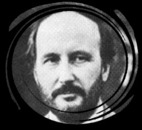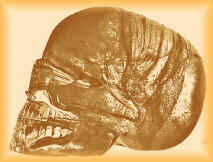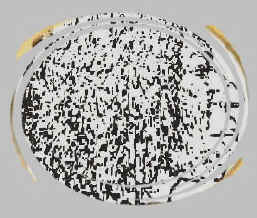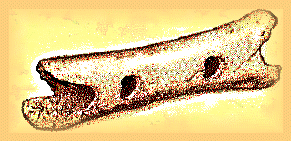| POP 21 | Example Exemplar Entities (E.E:E.) | ||||
| GOOCH 2 | |||||
 | Roots of RealityStormy Genious of Stan Gooch(S.G.O.S.G.) På dansk, Per (P.D.P.) |
| |||
| page 1 | page 2 | page 3 |
page 3c | ||
| POP 21 | Example Exemplar Entities (E.E:E.) | ||||
| GOOCH 2 | |||||
 | Roots of RealityStormy Genious of Stan Gooch(S.G.O.S.G.) På dansk, Per (P.D.P.) |
| |||
| page 1 | page 2 | page 3 |
page 3c | ||
Penduli Pendulumby Bobbie Gentry |
|||
|
Penduli pendulum Swing around, beat the drum In July, I'll deny The illusion |
|||
|
Slice the pie, leave a crumb What have I now become When the lie is just some Sad inducement |
|||
|
I'll be gone, beat the drum There I go, here I come And goodbye means good try No conclusion |
|||
|
Stifled cry will become Just a sigh, so hum-drum When goodbye serves as my One amusement |
|||
|
Pendulum |
|||
|
Pendulum |
|||
From 'The Secret Life of Humans' by Stan
Gooch London 1981
|
|||
| "Probably the first point which the orthodox scientist needs to get out of the way is the idea that modern science somehow grew out of religion, mysticism and the better in the paranormal." (p. 35) ... | |||
| "On the absolute contrary, we find that people deprived of reasonable religious sustenance exhibit a condition which is best described as 'spiritual starvation'." (p. 38) | |||
| "Religion and science are two diametrically different modes of human thought and being. The difference is best summed up in the epigram: in religion things have to be believed to be seen, while in science they have to be seen to be believed." (p. 39) | |||
| "And what we see in the last ten thousand years - the stone circles of Britain, the High Wisdom of Egypt, the hints of former glory among Central American Indians and the Australian Aborigines - all these are (in my opinion) but faint echoes and memories of a once very considerable mastery of the paranormal and the esoteric, a High Civilization of Dreams, so to speak, that flourished principally in the time of Neanderthal man." (p. 39) | |||
| "But equally not to be doubted is that our present age - say, the last two thousand years - whatever its other shortcomings, represents an equally amazing high point in the the development of the rational, objective mind." (p. 40) | |||
|
"A
very important question is whether the mystical-rational swing is a
continuous, cyclic process. There are therefore two sub-questions. First,
are we now about to enter a new age of high mysticism? Second, was the now
past age of high mysticism itself preceded by outstanding rational achievements
in the understanding and control of the physical world? I believe the
answer to both questions is yes. (p. 40) ...
The new age of high mysticism would be the much-heralded and much-publicized Age of Aquarius. ... (p. 40) "What about our other suggestion, that the past age of mysticism was preceeded by an earlier age of rational and objective achievement? "We can make out a good case for this position. Five hundred thousand years ago, for example, we find men living in warm, dry caves, using fire, cooking in pots and practising communal hunting. From that time on we see a steady improvement ..." ... (p. 41) ... "The period 500,000 to 100,000 years ago therefore really was a Golden Age of Conscious Discovery, of technological innovation, a time when man's mastery of his physical environment progressed by leaps and bounds. "Then it seems, came the upswing of religious consciousness, ..." (: Neanderthal-time po) |
|||
| "In this way we seem to discern in our history a continual macro-swing or macro-oscillation of the rational-mystical pendulum (probably incorporating also numerous similar micro-fluctations). (p. 42) ... | |||
| " When the mystical mode has been in control, the rational mode has always tended to be not simply ignored, but actively persecuted. Similarly, when the rational mode has been in control, the mystical has been actively repressed." (p. 42) ... | |||
| "What we really have to do is to attempt a life-style and an ethos that have only rarely been attempted successfully. It was perhaps achieved for at time in Ancient China, and resulted among other things in such marvels as acupunture and the I Ching. This attempt involves somehow allowing continuous or rapid oscillations between the two modes of our being." (p. 43) | |||
| t | |||
| ... "Fortunately, this paradoxical position can really be reached, for as Friederich Schiller put it as long ago as 1793: 'It is true that these two tendencies do indeed conflict with each other but - and that is the point to note - not in the same objectives, And things which never make contact can never collide.' ..." (p. 44) | |||
| And Mr Gooch did precise the concept of 'neotony' - how did primitive man get on terms with his fellow man? | |||
|  |
| |

